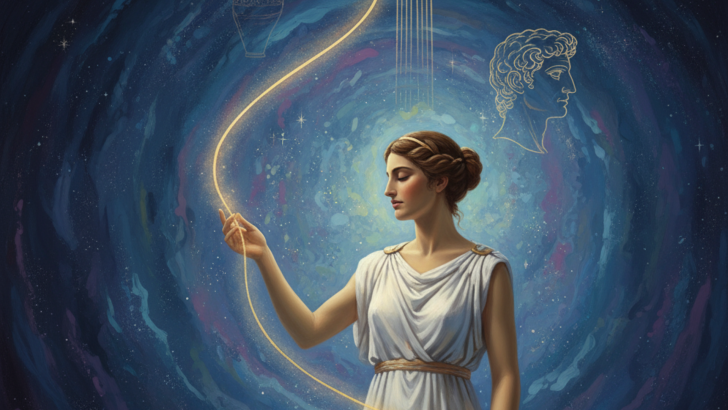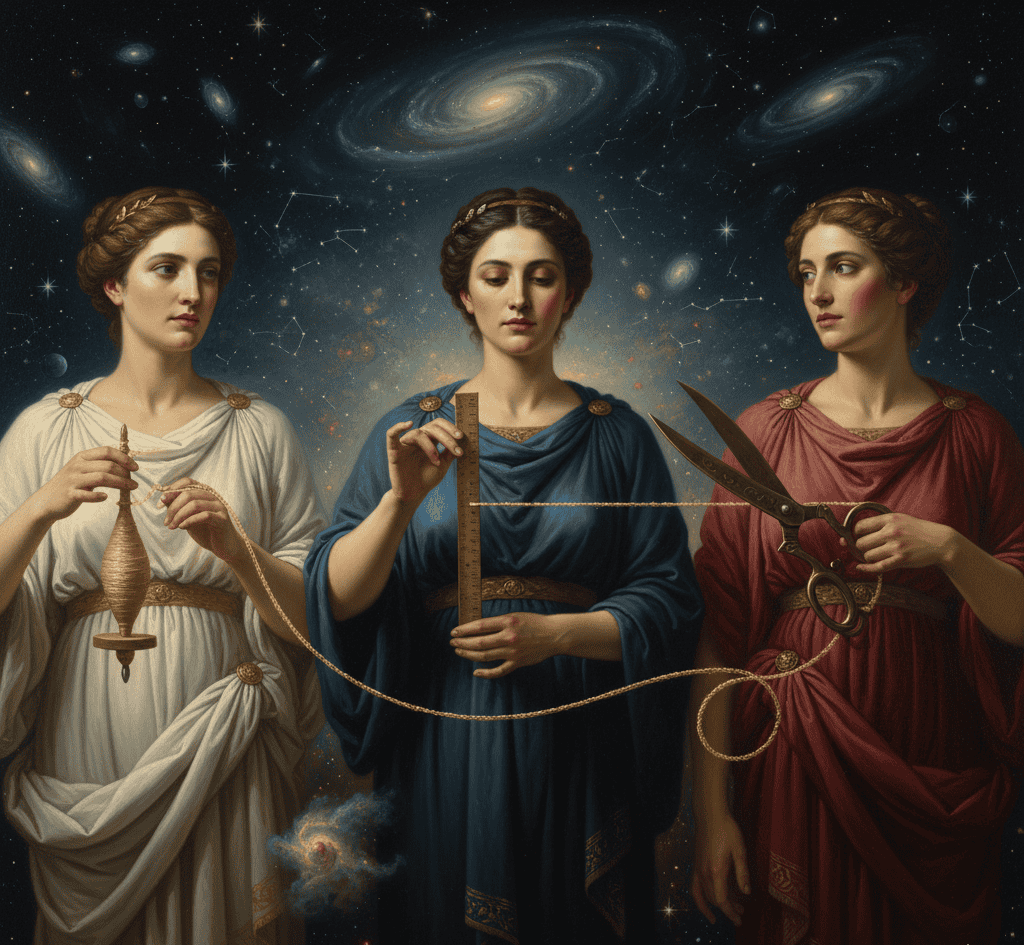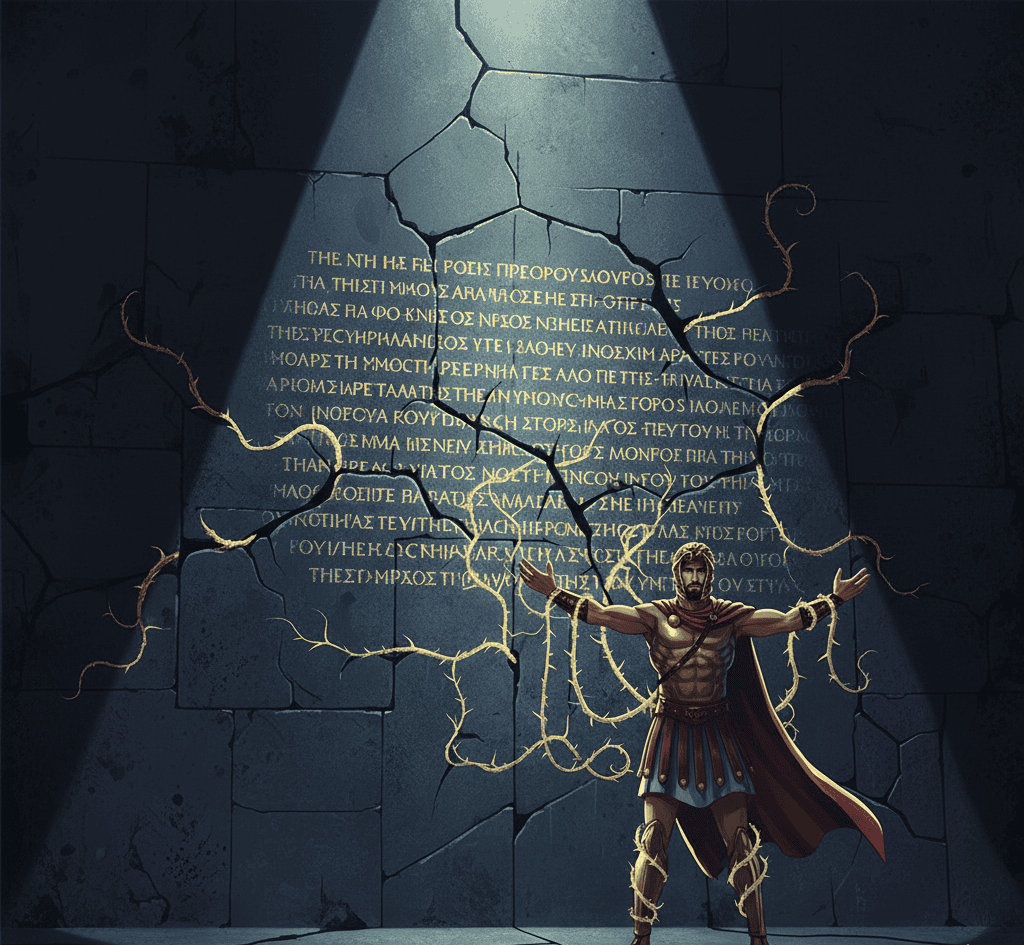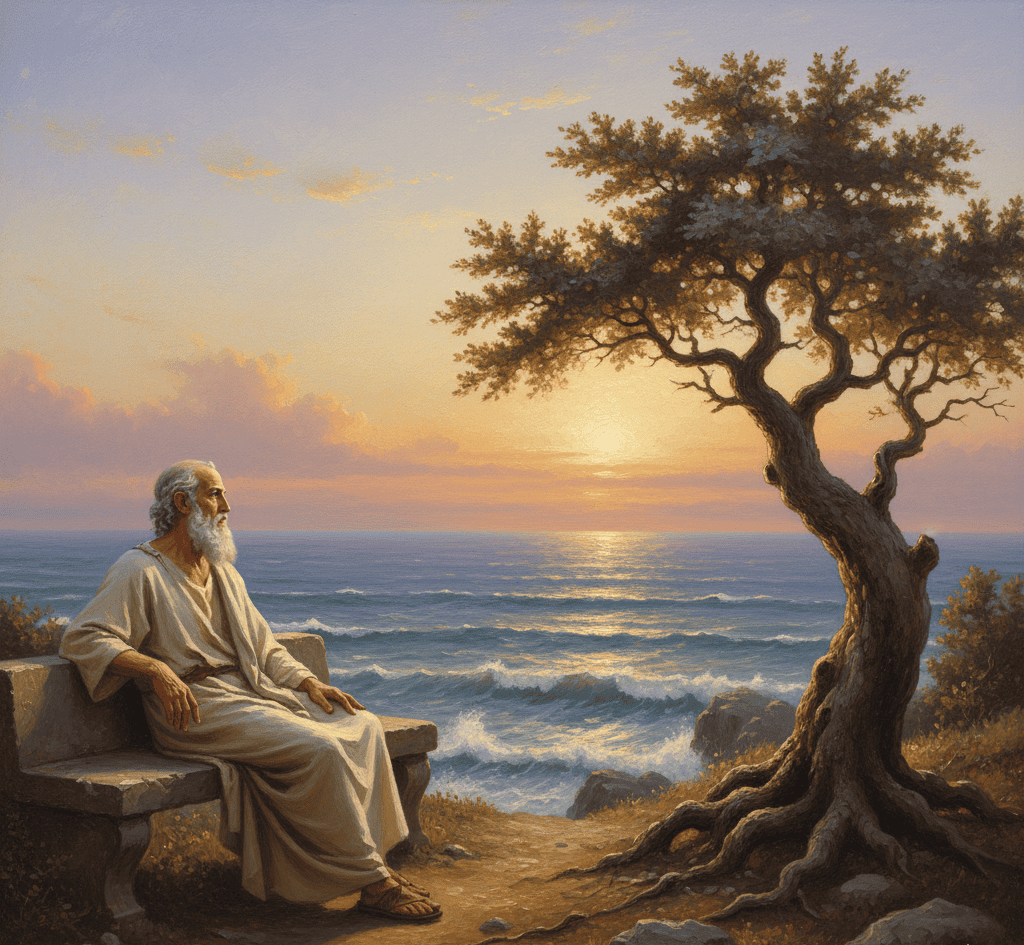From the first whispers of Greek mythology to the philosophical writings that shaped the Western mind, one belief remained constant: fate rules all.
To the ancient Greeks, destiny was not a mystery to solve or a force to defeat. It was the quiet rhythm of the universe itself, woven into every birth, every choice, and every ending.
The Greeks did not ask si fate existed – they only asked cómo it revealed itself. And while mortals might rage, weep, or rebel against it, fate always found its way.
The lesson passed down through their myths was not one of despair, but of understanding. You cannot escape what is meant to be, but you can learn to walk alongside it.
The Threads of the Moirai
At the heart of Greek thought stood the three Moirai – the Fates – who ruled over every mortal and god.
Clotho spun the thread of life, Lachesis measured its length, and Atropos cut it when the time came.
Their work was eternal and impartial. They did not favor kings or pity beggars, and even Zeus, lord of the sky, was powerless before them.
The Greeks believed that from the moment of birth, each person’s thread was already mapped within a vast tapestry that only the Fates could see in full.
This vision gave meaning to both triumph and tragedy. Life was not random; it was designed.
The gods might intervene, heroes might struggle, but destiny always followed its intended course.
To the Greek mind, fate was not cruel—it was balance. It reminded mortals that they were part of something far greater than themselves.
When crops failed or storms destroyed fleets, it was not blind misfortune. It was the will of the cosmos unfolding as it must.
By accepting this, people found peace in the unpredictable turns of life. Fate was the thread connecting all things, holding the universe together with purpose.
When Mortals Challenge the Inevitable
Greek mythology is full of cautionary tales about those who tried to change destiny.
Perhaps the most famous is Oedipus, a man doomed by prophecy to kill his father and marry his mother.
Horrified, his parents tried to stop it, leaving him to die as a baby. Yet their actions only set the prophecy in motion.
Oedipus grew up unaware of his origins and, in trying to avoid his fate, walked straight into it. His story is not about cruelty; it is about the danger of pride.
The Greeks called this hubris: the mistake of believing that human will could overcome divine law.
Oedipus was not evil; he was human, desperate to escape what scared him most. But to the Greeks, fear and denial were the surest ways to bring destiny crashing down faster.
Achilles faced a similar truth. His mother knew that her son’s life would end young if he went to war, so she tried to make him invincible by dipping him in the River Styx.
Yet even this act of love could not rewrite fate. His heel, the one place untouched by the river, became his undoing.
Achilles knew his death was inevitable, and still, he chose to live boldly rather than hide. To the Greeks, this was heroism – not in surviving fate, but in meeting it with open eyes.
These stories were more than myths; they were mirrors. They reflected how deeply the Greeks valued awareness over resistance.
Fighting destiny led to ruin, but understanding it led to wisdom. The lesson was clear: you cannot run from the thread that was spun for you.
The Grace of Acceptance
The Greeks did not see acceptance as weakness. It was strength – the highest form of courage.
Their heroes were not those who avoided death but those who faced it knowingly.
Achilles marched into battle knowing his time was short. Odysseus endured years of struggle at sea, trusting that every trial had meaning.
Even the gods, bound by the same laws of fate, accepted their limits with dignity. The philosopher Heraclitus expressed this beautifully when he said, “Character is destiny.”
What he meant was that how we live within our fate defines who we are. We may not choose our path, but we choose our response.
In this way, fate became a teacher rather than a tyrant. It reminded mortals to live mindfully, to find purpose within the inevitable.
The Greeks saw beauty in transience. A flower that blooms briefly is no less beautiful—it is more so because its life is short.
The same idea applies to human existence. Knowing that everything ends made each moment sacred.
Fate, then, was not a chain but a compass, guiding people to meaning through acceptance. This belief carried into their philosophy and art.
Tragedy, for example, was not meant to make audiences despair but to help them see the truth.
When people watched plays like Antigone o Medea, they recognized themselves in the characters’ struggles.
They saw how clinging too tightly to control only deepened pain. Through art, they learned that peace comes not from mastering fate but from understanding it.
Fate’s Echo in the Modern World
Though thousands of years have passed, the Greek view of fate still resonates deeply.
We may not believe in goddesses who spin the thread of life, yet we all feel the pull of forces we cannot name – chance, timing, or what we call destiny.
There are moments when life seems too precise to be accidental, when one choice or meeting changes everything.
In those moments, we are not so different from the ancient Greeks. We, too, search for meaning in what happens to us, trying to understand why certain paths open while others close.
Modern life often tells us to fight for control, to shape every outcome through sheer will. But the Greeks would remind us that control is an illusion.
The real power lies in awareness. When we stop struggling against what we cannot change, we start to see the pattern beneath the chaos.
The promotion we didn’t get, the love that ended, the chance we missed—perhaps these are not failures but parts of a larger design we have yet to understand.
To live with fate is to live with trust. It does not mean giving up, but moving forward with acceptance.
The Greeks understood that destiny was not an enemy. It was the rhythm of life itself. Their wisdom whispers to us still: do not fear what is written.
Walk your path with clarity, courage, and grace. Fate may not be changed, but when you understand it, you find something even more powerful—peace.

Siempre sentí una fuerte conexión con lo Divino desde mi nacimiento. Como autora y mentora, mi misión es ayudar a los demás a encontrar el amor, la felicidad y la fuerza interior en los momentos más oscuros.





